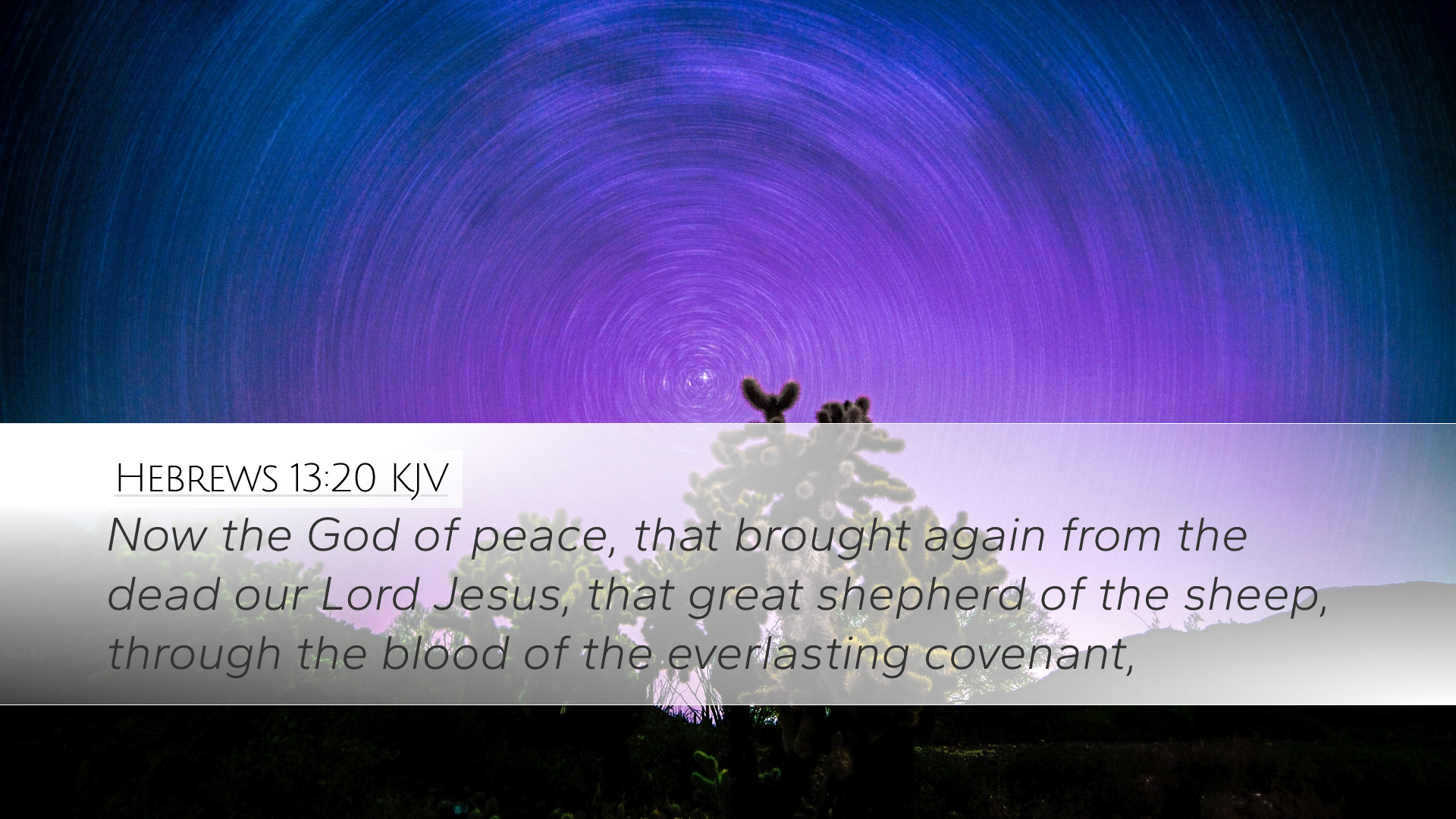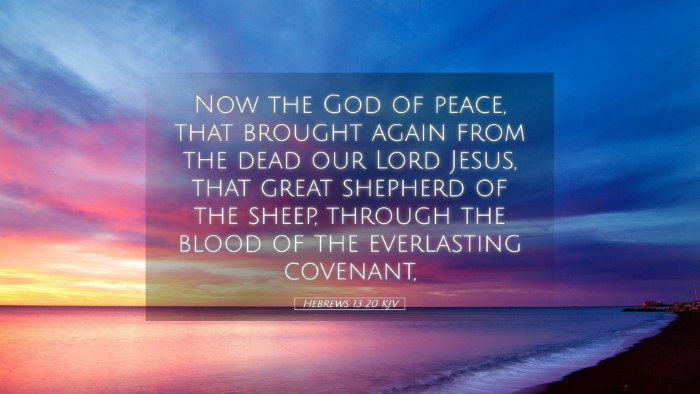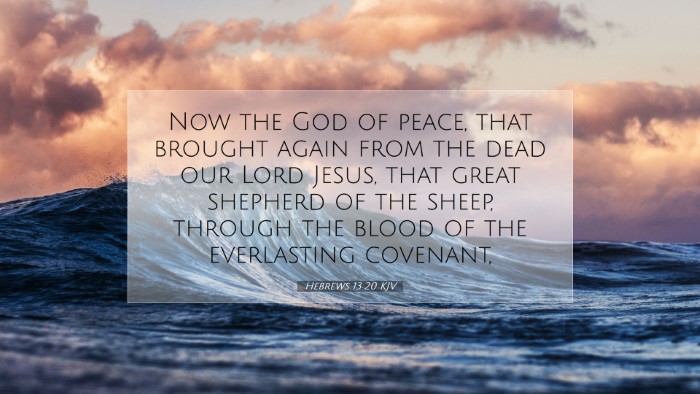Commentary on Hebrews 13:20
Verse Text: "Now the God of peace, that brought again from the dead our Lord Jesus, that great shepherd of the sheep, through the blood of the everlasting covenant."
Introduction
The concluding chapter of Hebrews encapsulates significant themes of peace, resurrection, and the enduring covenant through Christ. In this profound verse, the author addresses the readers with a benediction that highlights God's nature, His actions through Christ, and the resultant peace afforded to believers. Drawing from the insights of eminent commentators, we explore the depth of meaning within this passage.
The God of Peace
Context and Implications: The phrase "God of peace" introduces a divine characteristic essential for believers. Matthew Henry emphasizes that this designation is not merely a title but a fundamental aspect of God's relationship with humanity. He remarks that God is not only the source of peace but actively works to instill it within His people.
Albert Barnes notes the significance of God's peace as transformative, especially in the midst of trials. The concept of peace symbolizes wholeness and restoration, attributes of a God who reconciles the broken relationship between humanity and Himself through Christ.
The Resurrection of Jesus
Theological Significance: The reference to the resurrection of our Lord Jesus underscores the central tenet of Christian doctrine. Adam Clarke elaborates on the resurrection's importance as the cornerstone of faith, affirming the victory over sin and death. The resurrection validates Jesus' identity as the Messiah and assures believers of their hope in eternal life.
Furthermore, Matthew Henry highlights the implications of Christ's resurrection as it relates to the ministry of Jesus as the "great shepherd of the sheep." This imagery presents Christ as a protector and leader, guiding His followers through spiritual tribulations.
The Great Shepherd
Understanding the Metaphor: The term "great shepherd" reflects Jesus' pastoral role and ministry. Albert Barnes draws parallels between Jesus and the shepherds of the Old Testament, noting that unlike earthly shepherds, Christ shows perfect care and leadership. His sacrificial love culminated in the ultimate act of delivering His sheep through His death and resurrection.
Matthew Henry reinforces this view by outlining the tender care of the shepherd. The shepherd's role includes leading, protecting from danger, and providing for needs—a clear indication of how Jesus cares for His followers.
The Blood of the Everlasting Covenant
Understanding Covenant Theology: The mention of "the blood of the everlasting covenant" alludes to the new covenant established through Christ's sacrifice. Adam Clarke discusses the profound implications of this covenant, indicating that it is permanent and unbreakable, unlike past covenants that required continual sacrifices.
Henry emphasizes that this covenant grants believers access to God and assures them of eternal communion with Him. The blood of Christ not only covers sins but also initiates a relationship full of grace and peace—a theme consistently reiterated throughout the epistle to the Hebrews.
Conclusion
Hebrews 13:20 presents a beautifully succinct summary of key theological concepts: the peace of God, the resurrection of Christ, and the new covenant established through His blood. These elements combine to reassure believers of their secure position in Christ and the everlasting hope they possess.
This verse serves as a benediction, a reminder of God’s care and the assurance that comes from trusting in Jesus, the great shepherd. As pastors, students, theologians, and scholars meditate on these truths, they are encouraged to share the peace of God and the hope found in the resurrection with others, leading them into a deeper understanding of the everlasting covenant.


